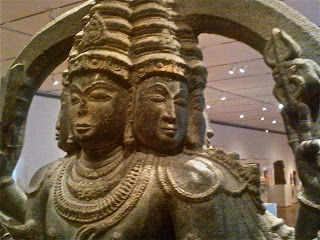Curzio Malaparte and James Ellroy: History, truth, and everything
 A comment on Sunday's post about James Ellroy's "Underworld U.S.A." novels is pertinent to both the novels your humble blogkeeper is reading.
A comment on Sunday's post about James Ellroy's "Underworld U.S.A." novels is pertinent to both the novels your humble blogkeeper is reading.Dana King, that fine author, nice guy, and skilled horn blower, said Ellroy has:
"a keener understanding of American history, and of the true ethos that has driven American society and history, than do many others."Not "grasp of the facts," but "keener understanding" of American history and the ethos behind it. Were Ellroy's tycoons, FBI chiefs, and gangsters as deranged in real life as they are in his books? Do his killer protagonists have real-counterparts? Does this matter, as long as the fiction makes sense, or feels right? What truth must a historian serve? A writer of fiction? Is historical fiction the same as fiction that takes history as its theme? Or is Ellroy just doing what all fiction arguably should do but so little does: portray real life, comment on real life, and entertain readers all at the same time?
 Besides Ellroy's American Tabloid, the other novel that sparked these questions is Curzio Malaparte's The Skin. That shocking, dark, graphic, and very blackly funny 1949 novel, banned by the church, banned by the Neapolitans, tells the story of the American military and the misery of Naples toward the end of World War II. "The book caused a scandal," one commentator said, "because it was mistaken for a realistic work."
Besides Ellroy's American Tabloid, the other novel that sparked these questions is Curzio Malaparte's The Skin. That shocking, dark, graphic, and very blackly funny 1949 novel, banned by the church, banned by the Neapolitans, tells the story of the American military and the misery of Naples toward the end of World War II. "The book caused a scandal," one commentator said, "because it was mistaken for a realistic work."Here's a bit of The Skin:
"`We are the volunteers of Freedom, the soldiers of a new Italy, It is our duty to fight the Germans, to drive them out of our homeland ... It is our duty once more to hoist the flag that has fallen in the mire, to set an example to all in the midst of so much shame, to show ourselves worthy of the task that our country entrusts to us.' ... When I had finished speaking Colonel Palese said to the soldiers: `Now one of you will repeat what your commanding officer has said. I want to be sure you understand. You!' he said, pointing to a soldier. `Repeat what your commanding officer said.'
"The soldier looked at me; he was pale, he had the thin, bloodless lips of a dead man. Slowly, in a dreadful gurgling voice, he said: `It is our duty to show ourselves worthy of the shame of Italy."I might not make American Tabloid the textbook for a course on twentieth-century American history or The Skin for a course on Italy during and after World War II. But both would make fine collateral reading.
"Colonel Palese came up close to me. `They understand,' he said in a low voice, and moved silently away."
© Peter Rozovsky 2013
Labels: Curzio Malaparte, history, Italy, James Ellroy, Naples, NYRB Classics, Underworld U.S.A., War, World War II


















































